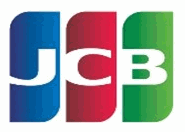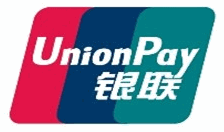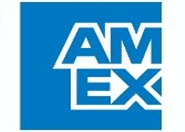Visa Outlet Regulations Explained: Why Merchant Location Matters

When it comes to setting up a merchant account, one rule trips up business owners more than almost anything else: Visa’s outlet regulations.
Think your merchant location is just another form to fill out? Think again.
On the surface, it sounds simple. Just provide your business location. Box checked.
But here’s the catch: Visa doesn’t mean a P.O. box, a forwarding address, or wherever your server happens to sit. They mean a real, established presence in the country where you’re applying for your merchant account. And you’d be surprised by how many merchants begin application processes and don’t realize this.
So, why is this so important?
Because your declared location directly impacts risk assessments, customer trust, fees, and even whether your transactions get approved at all.
Get it wrong, and the fallout goes way beyond paperwork. You could be dealing with declined payments, chargebacks, or even losing your ability to process altogether.
In this blog, we’ll break down Visa’s outlet regulations, show why merchants (especially those expanding internationally) struggle with them, and share what you can do to stay compliant without hitting costly roadblocks. The right processing partner can also make the process far easier.
What Are Visa Outlet Regulations?
Visa’s outlet regulations are all about one thing: making sure your business has a legitimate presence in the country where you’re applying for a merchant account.
Ok, that was simple. Or was it?
For card-present transactions, this usually means the physical location where the sale actually happens.
If you run a shop, it’s your store. If you’re a traveling merchant, it can either be where the sale is completed or where your principal place of business is located.
For card-absent transactions (like online, phone, or in-app sales), Visa requires that the location match the country of your principal place of business; basically, your true headquarters where your executive team runs the show.
And here’s where many merchants slip up: Visa is very clear about what doesn’t count as a valid business location. A post office box, a law firm’s office, or an accounting office is not acceptable.
But here’s the nuance: a virtual office can qualify if it’s backed by a lease agreement in the merchant company’s name. This makes sense in today’s world where many businesses operate remotely and don’t want a home address displayed publicly.
In other words, “location” isn’t just a line on your application. It’s proof of where your company actually operates, employs people, pays taxes, and takes responsibility for the sales it makes.
What Counts as a Proper Merchant Location
- A permanent business office where you actually conduct operations
- Your principal place of business (headquarters)
- Locations with staff accountable for sales and service delivery
- Locations where you pay taxes and are subject to local laws
What Does Not Count
- P.O. boxes or mail-forwarding addresses
- A law firm’s or agent’s office address
- Accounting firms office address
- The location of your servers, website URL, or customer service center
- An investor’s or director’s personal address
Real-World Example: U.S. Merchants Wanting an EU Account
To make this easier to understand, let’s work with a common scenario that we see a lot around here.
A U.S.-based business wants to expand into Europe and applies for an EU merchant account.
On paper, it sounds straightforward. After all, plenty of American companies sell to European customers every day.
But here’s the stumbling block: a U.S. corporation can’t simply get an EU merchant account without first setting up a legitimate presence in the EU.
Visa requires that you establish things like:
- A local corporation registered in the EU
- A physical office or headquarters
- At least one local director overseeing operations
- An EU-based bank account for settlement
Without these, your application will almost certainly be denied.
Why?
Because Visa’s outlet regulations are designed to tie your merchant account to a place where your business actually operates and is held accountable.
This prevents situations where businesses try to skirt local laws or taxes by setting up a “paper” presence in another region. For example, listing a law firm’s address in Paris or pointing to servers in Frankfurt won’t pass Visa’s test for a valid outlet location.
And this doesn’t only apply in Europe. The U.S., EU, and virtually every other jurisdiction require the same level of presence for merchant accounts. No shortcuts. You need infrastructure in Europe. Expanding into a new market means more than just selling across borders. To secure a Visa-compliant merchant account, you must establish a true local footprint such as company registration, office space, directors, and banking, all in the region where you want to process.
The Risk of Getting It Wrong
Now that we understand what Visa wants, what happens when we get it wrong? Well, a lot, actually; and none of it is good.
When merchants misrepresent or misunderstand their outlet location, the fallout can be serious:
- Declined transactions: If your declared location doesn’t match Visa’s rules, your authorizations may not go through. That means lost sales right at the point of purchase.
- Chargebacks and disputes: Customers who see confusing merchant information on their statements are far more likely to dispute the charge. Visa designed outlet rules specifically to reduce this risk.
- Processing disruptions: Acquirers and payment facilitators may suspend or terminate accounts if they discover inconsistencies with merchant location.
- Regulatory and financial penalties: Inaccurate merchant setup can lead to fines, withheld funds, or even loss of your ability to process cards altogether.
- Damaged reputation: Beyond the financial side, customers lose trust if they think they’re buying from one country only to find out their transaction is processed elsewhere.
- Cross-border headaches: If you process offshore without a proper local setup, issuing banks often flag those transactions. The customer may have to approve the purchase manually, and throughput can drop from close to 100% down to 50%. That reduced efficiency also doubles your transaction fee costs.
What often trips merchants up is assuming that “close enough” is acceptable. It’s not. A law firm’s office in another country, a director’s home address, or simply using servers abroad won’t satisfy Visa’s requirements.
Key Takeaway: Misstating your merchant location isn’t just a technical error. It can jeopardize your revenue, your reputation, and your entire ability to process payments. Compliance with Visa’s outlet rules is non-negotiable if you want to protect your business.
Visa’s Rules for Transparency at Checkout
Visa’s outlet regulations don’t stop with how you set up your business. They also extend to how you present yourself to customers, especially online.
If you’re an eCommerce merchant, Visa requires that your checkout process clearly display the country where the transaction will be processed. And “clearly” means right on the checkout screen itself, not hidden in a footer or tucked away on a separate page.
Why does this matter so much?
Because customers deserve to know whether their purchase will be treated as a domestic or international transaction before they click “buy.” If that’s not obvious, it can create confusion, dissatisfaction, and even complaints to Visa.
Here’s an example: imagine a U.S. customer thinks they’re buying from a U.S. company, but when the charge hits their statement, it shows up as an international purchase from Europe. Without disclosure, the customer is more likely to dispute the charge and that puts you at risk for unnecessary chargebacks.
The fix is simple: be transparent at checkout. Show the country upfront. It’s a compliance requirement, but it’s also good business. It builds trust and keeps customers from feeling blindsided.
How to Stay Compliant Across Borders
So how do you actually get this right? Staying compliant with Visa’s outlet regulations comes down to proving you have a real footprint in the country where you want to process.
At minimum, that usually means:
- A registered legal entity (corporation or LLC) in the region
- A physical office where operations happen
- Local employees or directors accountable for the sales and services in that market
- Paying local taxes and following regional regulations
- An in-region bank account to settle transactions
In Europe, Visa offers a bit of flexibility. If you’re operating in the European Economic Area (EEA), the required business activities (like staffing, taxes, and banking) can be spread across more than one EEA country, but they must still stay within the region.
The rules are even tighter for payment facilitators and digital wallet operators. They must:
- Maintain a permanent location in the country where they operate
- Pay taxes locally on the services they provide
- Keep a bank account in that jurisdiction for settlement
- Comply with all local laws and, in some regions, hold a business license
This isn’t just red tape. Visa’s goal is to ensure that merchants, facilitators, and wallet providers are anchored in the places they do business. That accountability protects cardholders, acquirers, and the integrity of the payment ecosystem.
Frequently Asked Questions on Visa Outlet Regulations
Can I use my attorney’s office in France as my merchant location? Nope. Visa doesn’t accept law firms or agent addresses. You need a real, working office.
What about a P.O. box or mail-forwarding service? Not valid. A box or forwarding address isn’t a business location.
My servers are in another country. Can I list that? No. Servers, URLs, or customer service centers don’t count. Visa wants to know where your business actually operates.
If I have a local director, is that enough? Not by itself. You’ll also need a registered company, an office, and often a local bank account.
Can I spread business activities across different EU countries? Yes, but only within the European Economic Area. As long as all the activity (staff, taxes, banking) stays inside the EEA, you’re good.
How can MobiusPay help me with this? We know Visa’s rules inside and out. MobiusPay guides merchants through the setup so you don’t hit roadblocks.
What if I want to expand globally but don’t know where to start? That’s our specialty. MobiusPay connects you with the right partners and helps you build the presence you need for compliant merchant accounts worldwide.
Getting merchant location right isn’t just about Visa compliance, it’s about protecting your revenue, your reputation, and your ability to grow. Whether you’re applying in the U.S., EU, or any other jurisdiction, the rules are the same: you need a real presence in the country where you want to process.
At MobiusPay, we help merchants navigate these rules, set up the right infrastructure, and avoid costly mistakes. Expanding across borders is complicated, but with the right partner, compliance becomes a competitive advantage.
Return to Blog








* Created by
